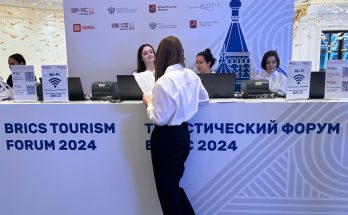
By T.S. Tirumurti
West Asia is back to familiar territory – turmoil in Palestine and threat of regional flare-up. The attack of Hamas on Israel on 7 October 2023, in which 1140 Israelis were killed, including civilians, and around 250 hostages were taken by Hamas, shocked Israel and the world not because it happened but the fact that it took place inside Israel, catching the Israeli intelligence completely off-guard, and by the sheer audacity and brutality of the attack.
Emasculating the Palestine issue
While the Israel-Palestine conflict has had a long history of occupation, broken promises, violence, failed initiatives and, after all these decades, Palestinian territories still remain occupied territories, in the recent past the Palestinians saw their hopes for a Palestinian state vanish and all avenues meet a dead end. The geopolitical postures of the major players ensured this impasse.
Firstly, the West and Israel wanted the world to believe that the Palestinian cause was not the most important in the Middle East and the main threat was Iran. In fact, the 2019 meeting in Warsaw on the Middle East convened by the US and Poland, where I was present as MEA Secretary in-charge of the Arab world, was focussed only on how much more dangerous Iran was to the Middle East than the Israel-Palestine conflict. The world bought into this narrative.
Secondly, the US successfully sold the idea to the Arabs, especially the Gulf, that you could have normalisation with Israel without addressing the Palestinian issue, in fact by ignoring it. This manifested in the Abraham accords between Israel and UAE, Bahrain, Morocco and then Sudan. Saudi Arabia was in the final stages to normalise relations when October 7 happened. But none of these normalization discussions made any push for a Palestinian state, except promise of funds for Palestinians. Money cannot be a substitute for a Palestinian State but that was only thing on offer.
Thirdly, the Islamic world itself was facing a major schism where bigger Islamic countries indulged in a not-so-subtle fight for the leadership of the Islamic Ummah. One saw the serious fall-out in the Gulf between Qatar and the other Gulf countries. The Saudis and Emiratis started playing a bigger role in regional conflicts like in Yemen, Syria, Libya etc. Turkiye, a NATO power, asserted itself in many hot spots. And of course, the role of Iran itself in Yemen, Lebanon, Syria, Iraq etc, which the Gulf countries fiercely countered. The Palestinian issue was forgotten.
Further, the constituency for a two-state solution is virtually dead in Israel with the rise of right-wing sentiments and fast disappearing in the rest of the world. Rapid growth of illegal Israeli settlements in the West Bank and East Jerusalem and setter-led violence are creating new facts on the ground militating against a two-state solution. With a far-right hardline government in place in Israel which has even called for ‘ethnic cleansing,’ and a discredited Palestinian Authority in the West Bank and no peace talks between the two for years, the constituency for a two-state solution now remains mainly on paper. The recent plan presented by PM Netanyahu to the Israeli Cabinet is reported to have proposed complete Israeli control from Jordan to the sea i.e. all of West Bank, Gaza and Jerusalem.
Therefore, geopolitics conspired to take Palestinian issue off the radar. In this every major player was complicit. The irony is that, while the world has no love lost for Hamas, their attack brought all these issues to the centre-stage yet again.
Growing realisation amidst killings

The course correction has already started. The Gulf countries have reluctantly realised that Iran should be part of the solution. This was clear in the rapprochement between the two sworn rivals – Saudi Arabia and Iran, in the aftermath of the Houthis attack on Saudi Aramco installation. Turkey is attempting a rapprochement with Egypt and others on the other side of the ‘divide’. Normalisation with Israel is on hold, with the Saudis taking a stand that they will not normalise till there is an irreversible path to a Palestinian state. The US has rediscovered the two-state solution as a solution for Israeli security, at least on paper. President Biden even proposed a de-militarised state of Palestine, leading to a rebuff from PM Netanyahu. But the West is yet to do anything to stop the killings in Gaza with ceasefire calls in the UN Security Council being vetoed.
Israeli bombardment of Gaza has killed more than 29,000 Palestinians of whom 13,000 are children. Those alive are facing starvation, mass displacement, loss of home and shelter, collective punishment and debasement as human beings. Now the Gazans face the prospect of being thrown out of Gaza into Egypt all under the guise of defeating Hamas.
The Hamas Dilemma
The conventional wisdom is that Hamas is bad news but Palestine is good news. That’s the premise most countries are working on, including the Arab countries. That explains the Arab countries making enough noise, but not taking concrete action to stop the war except sponsoring a UN General Assembly resolution calling for ceasefire. The bad news is that most see the defeat of Hamas as the defeat of Palestine. If Hamas wins, this will create a bigger dilemma since it will then have to be accommodated in any future Palestinian leadership, whether one likes it or not. It’s a Hobson’s choice. So, the IDF war machine rolls on in Gaza, unchecked.
In the midst of all this, the International Court of Justice’s interim ruling has come as a much-needed voice of sanity for giving a legal basis for the events unfolding in Gaza. By finding “plausible” genocide by Israel, and incitement to genocide by Israeli Ministers, by recognising serious risk of further deterioration and by ordering immediate humanitarian aid to Palestinians in Gaza and the release of hostages by Hamas, it is evident to everyone except a few that if the ICJ ruling has to be implemented, then one has to have a ceasefire. Israel, the US and the West have promptly ignored the ruling and even tried to subvert it – the most blatant being their attempt to discredit UNRWA and by implication discredit the alarming statistics coming out of UNRWA. Undermining the refugee issue will help Israel since it will obfuscate an issue crucial for a two-state solution – the return of refugees. But the ICJ ruling still remains a legal and moral victory for the Global South which supports an immediate ceasefire.
Regional flare-up
However, the possibility of regional flare-up is real. Killing of three US troops is only one in a series of attacks in the region from the US, Israel, Iran, Syria, Hezbollah and Houthis. Iran’s hand is visible in Houthis attack on ships in the Red Sea seriously disrupting international supply chains, with US-led counterattacks on Houthi bases not deterring them. The Israelis are amassing troops in the North and are poised to attack Hezbollah in South Lebanon. Hezbollah has given indications that it is not interested in escalating the conflict. Iran does not seem to be keen to escalate either. In fact, the Houthis attacks seem to be Iran way of warning the West and Israel not to attack Iran or Hezbollah and widen the conflict. Why is Israel interested in expanding the conflict since neither the US or Iran want to do so? Is it linked with the survival of the present far-right coalition in Israel and PM Netanyahu’s own future?
A Goalless War
The Gaza War is a war without a political goal other than the military goal Israel has declared – the elimination of Hamas and release of hostages. If both are achieved, then the end game is continued occupation of Palestine! An occupation without end cannot be a sustainable outcome of war. But this is what the recent plan presented to the Israeli Cabinet wants. Or is the real goal the cleansing of Gaza? The West and some Arab countries are trying to put together a truce between Hamas and Israel. This will mean Hamas will still be there in Gaza. Will the war resume after truce? If it doesn’t, then will PM Netanyahu accept ceasefire with Hamas at the cost of his far-right coalition?
The Day After
The “day-after” will have to start on the premise that a Palestinian State will come into existence. Otherwise, Palestinians will be back to a worse place than where they were on 6th October. There will be need for credible partners on both sides – an Israeli leadership which accepts a two-state solution and a Palestinian Authority with credible elected leaders to administer both Gaza and the West Bank as one unit. Since Hamas is not expected to disappear, there will a strong case for ‘moderate’ Hamas leadership be included in the Palestinian leadership. After all it took two decades for the US to bitterly fight and replace Taliban with Taliban in Afghanistan. No elections have been held in Afghanistan after two years nor are their women treated as equals, but countries are making a beeline to normalise relations with Taliban. Such examples are not lost on non-state actors like Hamas. And where is the new Israeli leadership going to come from when the centre is emasculated?
The US is the country with clout over Israel though circumscribed due to their domestic pressure in an election year, their over-reliance on Israel to counter Iran and PM Netanyahu’s ability to out manoeuvre them. The US is in the best position to pull the situation from the brink and egg the parties towards a two-state solution. But it needs a re-set of its policy on West Asia including its ‘unconditional’ support for Israel, its current unilateral sanctions regime in the region and its treatment of Iran as a ‘pariah’ state. They cannot do more of the same thing and expect different results.
Much as we hate to admit it, Hamas has re-set West Asia. The world is rebooting. But not fast enough.
(Amb. (Retd.) T. S. Tirumurti served as Permanent Representative of India to the United Nations. In May in May 2020, he served as Secretary in the Ministry of External Affairs, handling the Economic Relations portfolio ((which included, inter alia, the Gulf and the Arab World, Africa, and India’s Development Partnership. He is presently Distinguished Professor IIT Madras and the author of three books.)
This article has been exclusively written for India and the World magazine and indiawrites.org
Author Profile
- India Writes Network (www.indiawrites.org) is an emerging think tank and a media-publishing company focused on international affairs & the India Story. Centre for Global India Insights is the research arm of India Writes Network. To subscribe to India and the World, write to editor@indiawrites.org. A venture of TGII Media Private Limited, a leading media, publishing and consultancy company, IWN has carved a niche for balanced and exhaustive reporting and analysis of international affairs. Eminent personalities, politicians, diplomats, authors, strategy gurus and news-makers have contributed to India Writes Network, as also “India and the World,” a magazine focused on global affairs.
Latest entries
 In ConversationJuly 26, 2024India-Italy defence collaboration can extend to third countries: Anil Wadhwa
In ConversationJuly 26, 2024India-Italy defence collaboration can extend to third countries: Anil Wadhwa In ConversationJuly 23, 2024Italy views India as a key partner in Indo-Pacific: Vani Rao
In ConversationJuly 23, 2024Italy views India as a key partner in Indo-Pacific: Vani Rao DiplomacyJune 29, 2024First BRICS unveils a roadmap for boosting tourism among emerging economies
DiplomacyJune 29, 2024First BRICS unveils a roadmap for boosting tourism among emerging economies India and the WorldJune 11, 2024On Day 1, Jaishankar focuses on resolving standoff with China
India and the WorldJune 11, 2024On Day 1, Jaishankar focuses on resolving standoff with China






